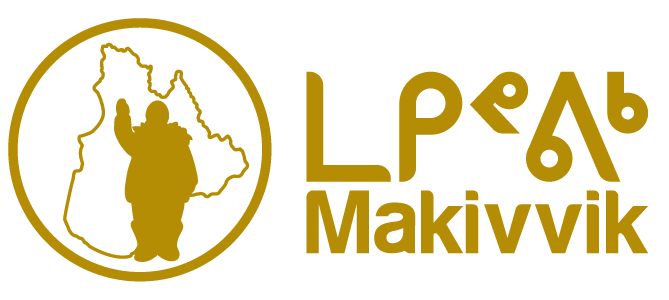It’s hard to argue that Nunavik’s talented seamstresses don’t already produce the warmest clothing, perfectly adapted to the frigid winter environment, with carefully selected material from the south, handpicked down and furs from the animals plentiful in the region. One would be hard pressed to find outdoor clothing as warm as Nunavimmiut’s handmade outerwear.
The problem that some people face is the cost. These materials don’t necessarily come cheap and not all Nunavimmiut have the means to sew, or have another seamstress sew their outdoor clothing. This is where generous donations from some companies in the south have helped fill the gap. Late last fall Canada Goose, Moose Knuckles, and Zone Alpine Pro shipped winter and fall clothing to Nunavik through Makivvik.

Getting the clothing to the north was a collective effort. With the help of Kativik Ilisarniliriniq (KI), Makivvik was able to store all the incoming donations at the KI warehouse in Montreal. With the Logistical support of the KI warehouse staff, Makivvik staff unpacked, sorted, and repackaged all the clothing for redistribution to Nunavik communities.
From there, with the support of both Air Inuit and Canadian North, the outdoor clothing made its way to Nunavik through Makivvik board members. Distribution was handled differently in every community. For example, in Kangiqsualujjuaq the donations were given to the Qarmaapik House, a community lead initiative, which supports families in need. Through Qarmaapik clothing donations were distributed to community members who most need it. In Quaqtaq the clothing donations were distributed though the local social services office. Kangiqsujuaq distributed the clothing through the local NV office and people were invited to sort through the various sizes and pick clothing that would best fit their needs.

Some of these donations have been recurring. Canada Goose, for example, has made four shipments of clothing which have now been distributed throughout the region. The shipment from Zone Alpine Pro (under their Full Social Jacket donation program) arrived in the region just before winter hit, and most recently a generous shipment from Mooseknuckles Canada is making its way into Nunavik.
In a region where costs for goods are disproportionately high when compared to the south, these kinds of donations make a huge difference to the families in communities who otherwise wouldn’t have the means to either sew or purchase warm clothing for Nunavik’s cold winters.




